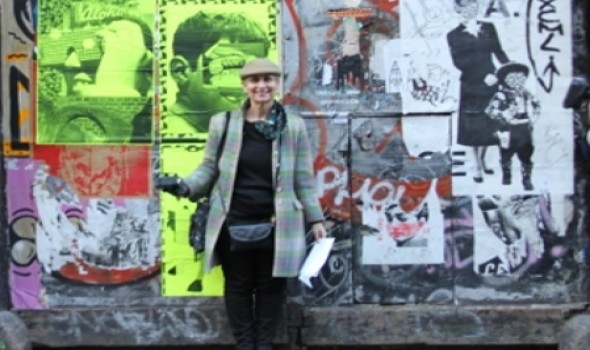Immigrants telling their own stories
Immigrants telling their own stories

Discussions of race and immigration have been all over the media in the last few weeks. This is of course thanks largely to UKIP and the nasty racist rhetoric they have been using in their European election campaign. But discussions have also been had about the language of racism in the wake of the unpleasant BBC footage which emerged last week, of Jeremy Clarkson using the N-word. It’s been notable that, in most mainstream coverage of all this, the voices have all been rather white and British. There have been some excellent correctives to this, most notably Musa Okwonga’s piece in the New Statesman and this Observer piece by Shaista Aziz. But the basic problem remains: in nearly all mainstream media discussions of race and immigration, immigrants and people of colour are practically invisible; rarely are they given a voice. Migrant Voice is an organisation which seeks to remedy this situation. Their mission is to “transform how migrants are seen and heard in the media: from passive, disempowered and marginalised victims, to makers of their own media content”. They run many initiatives to this end, such as the Ask a migrant feature on their website, and at the end of April they launched their documentary Faces of Our City: Stories of Migration Past and Present at Europe House, in Westminster. The documentary was made by migrants involved in MV and its intention is to tell a story we are not often told, about the experiences of migrants in London and the ways in which migrants and non-migrants successfully live together in the city. The film itself is a simple portrayal of immigration and integration in London, using three strands to tell its story. It opens with Sara, who describes her family’s immigration to the East End of London from Eastern Europe as she walks round Whitechapel. She talks about her own feelings about her family’s history and interviews current residents about their experiences of migration. The second part of the film - and possibly the most powerful - follows Mariko, a young Japanese woman who was involved in community action last year against the UKBA raids in Walthamstow. Here, we see British people and migrants working in solidarity to oppose the intimidatory actions of UKBA and to make people aware of their rights. The final part of the film shows Simone and Ricardo and their work at the community organisation Abras in Willesden, helping and advising Brazilian immigrants in London. The film is a no-frills account of the immigrant experience in London. There is no fancy editing or effects - just people telling their stories. Easy enough to do, you’d have thought, yet still something we rarely see in the mainstream media. At the event the film was followed by a panel debate about the ways in which migrants’ engagement in the upcoming European elections can be used to combat the rise of far-right parties. On the panel was the Green MEP Jean Lambert, Jackie Minor from the European Commision and Simon Woolley from Operation Black Vote. Minor talked of the dissonance between people’s everyday experiences of immigration and their attitudes to immigration policy: she cited one poll in which 70 per cent of people said that they would ban unskilled migrants to this country but in which just 25 percent of people said that immigration affects their everyday lives. Lambert talked about the alliances and networks being formed within the European Parliament to combat the far right and Woolley talked of the importance of migrants exercising their franchise to make their voices heard. Contributions from the floor raised important questions about the ways in which the three main parties in Britain have pandered to and often actively encouraged anti-immigrant sentiment. One contributor talked about the importance of incorporating LGBTQ voices into the debate and another raised the crucial issue of low literacy among many migrant groups (indirectly pointing to wider questions about cuts to ESOL provision). This discussion showed that racism and anti-immigrant policy are problems that will not be solved by voting alone. Migrant Voice and organisations like them are working hard to open up spaces in which immigrants can tell their own stories and in which the dominant narratives can be challenged. We need to create more spaces like this and we all have a responsibility to help make this happen. Written by: Elinor Davies. The article was first published at http://www.newleftproject.org/index.php/site/blog_comments/immigrants_telling_their_own_stories - republished by permission


